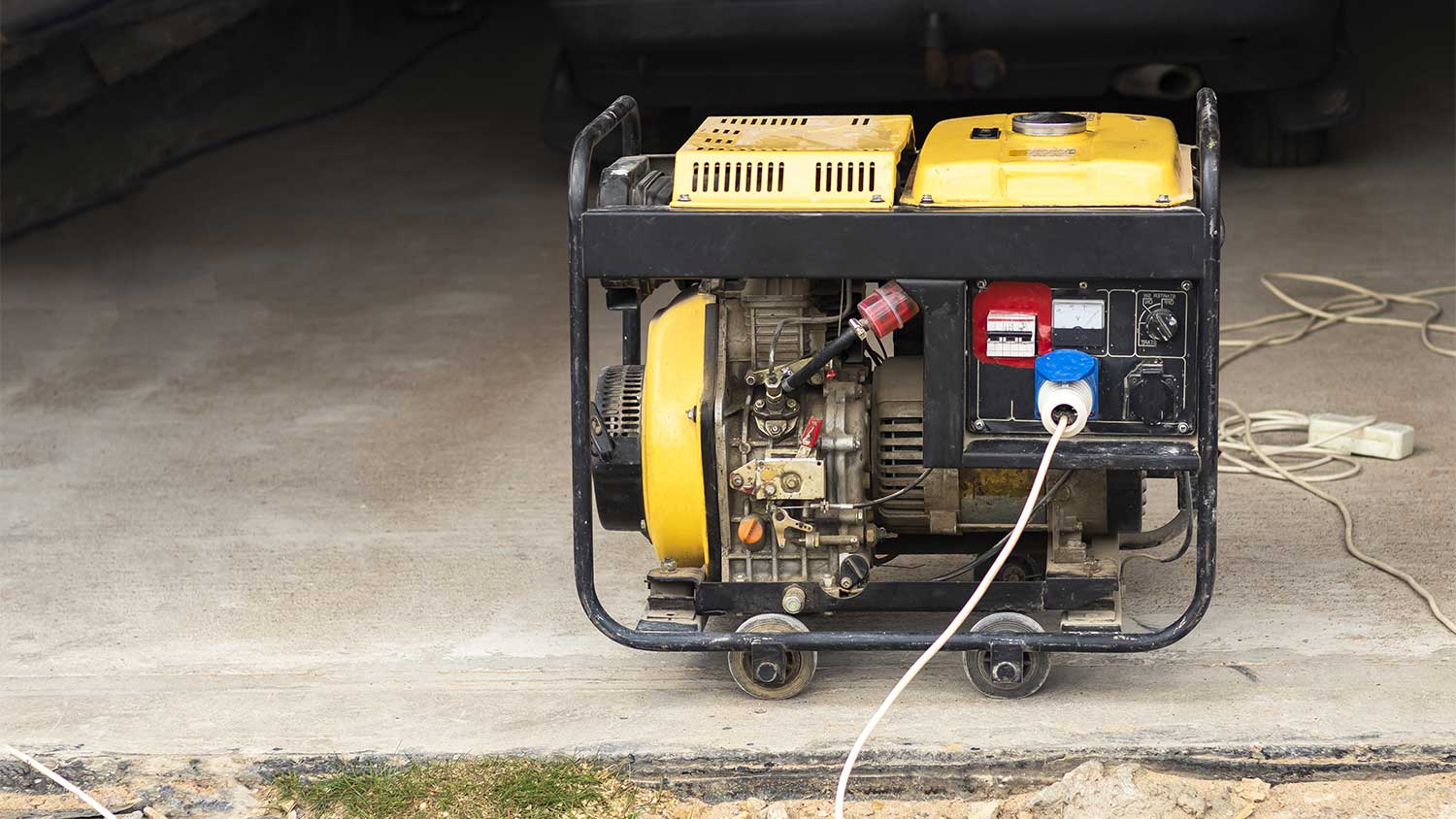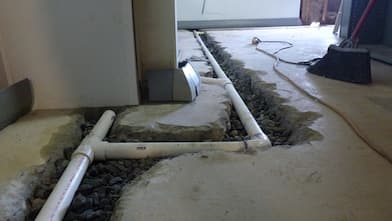The situation just went from dire to drier
Ready to get pumped up about choosing a sump pump backup? No? Well you should—there’s something to be said about the peace of mind of knowing your basement will stay dry in even the most ferocious downpour. If you live in a flood zone or in an area with lots of rain, you probably need a sump pump, as well as a backup to protect your home from water damage even if the power goes out. Here are the three most popular sump pump backup options.
1. A Battery Backup for Your Sump Pump
A battery-operated backup sump pump is the most popular choice among homeowners because it's fairly easy to install, relatively inexpensive, and simple to maintain.
With a battery backup, you're often just plugging in your backup without any need for hardwiring. The backup is designed to kick in automatically if your power fails. That means you don't have to worry about "sleeping through" a power outage to wake up to a flooded basement.
It's important to know the pros and cons of a battery backup for your sump pump because this isn't a "perfect" solution.
Pros: First, battery backups earn points for offering a very high pumping volume. This is important if a power outage is due to a storm that's driving water toward your home's foundation.
Cons: The obvious downside to a battery sump pump backup is that batteries don't run forever. This won't be a big issue during a short stint without power. However, you may be left in the lurch if your lights stay down for a while.
A battery backup for your sump pump isn't considered a permanent fix. Even a high-quality battery backup is only meant to last up to five years.
2. A Water-Powered Sump Pump Backup

Consider this option a serious upgrade from a battery backup. Unlike a battery backup that simply plugs into your pump, a water-powered sump pump backup is usually completely separate from your pump.
Water-powered backups are designed to run as long as you have a working water supply. The reason why is that they use water pressure to create suction that keeps your home dry.
Pros: The biggest perk is that you aren't limited in how long you can run your backup like you are with a battery that ultimately runs out of juice. Another upside of a water-powered sump pump backup is that it's meant to last for a long time. Most homeowners can expect to go 20 years without needing a replacement.
Cons: Water-powered backups lose points compared to battery backups in cases where your home suffers from low water pressure. Also, having a water-powered backup sump pump costs more for both the unit and installation. You’ll want to hire a sump pump specialist to install it because it needs to be installed perfectly to function properly.
There's one detail about your home that may actually make the decision for you if you're trying to decide between a water-powered backup and other options. Water-powered sump pump backups can't be installed in homes with wells.
3. A Portable Backup Generator for Your Sump Pump

You're not necessarily stuck altering your sump pump to get backup support. Some homeowners opt to create a way to keep their sump pumps powered through outages using backup generators.
A backup generator allows you to keep your sump pump running by supplying electricity to your home. In addition, most generators are designed to handle everything from a few key appliances to the normal household load.
Pros: The main perk of a backup generator for your sump pump is that there's really no limit to how long you can run one. Ultimately, this can offer the best protection against water damage. You just have to make sure that you have enough gas to keep your generator going. You should also be prepared for the "noise" involved with running a generator for the sake of keeping your sump pump running around the clock.
Cons: A backup generator for running your sump pump requires the biggest cost investment when compared to battery backups and water-powered backups. However, your generator will likely last up to 20 years if you maintain it properly. Just keep in mind that you'll need to take proper care of your generator.
Bonus Tip: Consider a Smart Sump Pump System
A reliable water alarm should accompany any sump pump backup option that you choose. Water alarms aren't just important for storms. They can also alert you of constant water flow from a sump pump caused by a damaged or failing pump.
You can even consider a smart sump pump system that incorporates an alarm with an automatic switch that activates your backup in the case of a power failure. Sump pump specialists near you should be able to show you the various options available.





